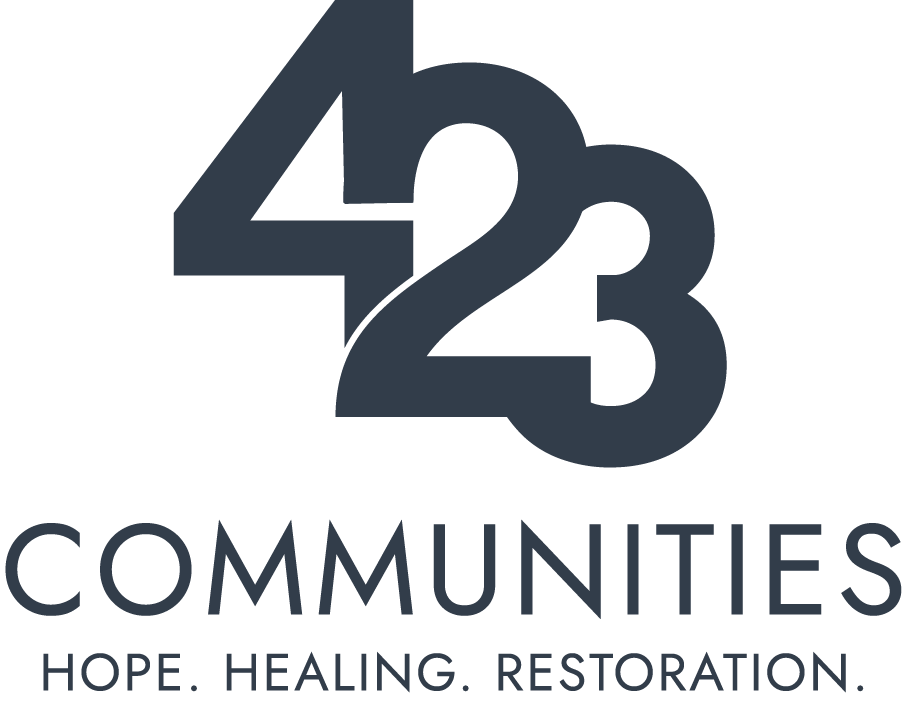Who is Jesus?
Many Christians behave as though they consider themselves to be the Lone Ranger with Jesus as their sidekick, Tonto. These believers have an agenda, and they expect Jesus to help them complete it. Jesus is an important tag-along, whose input is valid and helpful most of the time. In a pinch, “Tonto Jesus” is there to bail them out, but as a rule, Lone Ranger Christians can handle things themselves. They are the hero of their own story, not Jesus.
We have a saying in 423 Men: “You can overcome sexual sin, but you cannot do it alone.” Many Christian addicts give verbal assent to this truism, but are quick to explain, “I have Jesus and that’s enough. Me and Jesus can get the job done.” Believers who struggle with sexual temptation often quote popular verses like, “I can do all things [like kick the porn habit] through Him who strengthens me” (Philippians 4.13 NAS). The misapplication of this Scripture text easily validates the false notion that a hyper-independent reliance upon God, apart from the community of faith, is enough to stop the spirit of porneia.
For many self-starter personalities, Philippians 4.13 boils down to three words: “I can do,” which is a prevalent theme in motivational self-talk but entirely misses the context of this biblical passage. Paul wrote or dictated these words during his detainment, probably in Rome, around AD 61. He was endeavoring to encourage the Philippian church by his example of having learned the secret of both hunger and abundance. Neither adversity nor prosperity would affect Paul’s attitude, for he had “learned to be content in whatever circumstances” he found himself (4.11). “I can do all things” was not a mantra for success, nor was it written to help men stop looking at porn on the Internet. These words, rather, were a testament to the value of contentment in all circumstances.
Here’s a more applicable verse for men and women enslaved to the cruel taskmaster, porneia:
“…we are no longer to be children, tossed here and there by waves, and carried about by every wind of doctrine, by the trickery of men, by craftiness in deceitful scheming; but speaking the truth in love, we are to grow up in all aspects into Him, who is the head, even Christ, from whom the whole body, being fitted and held together by that which every joint supplies, according to the proper working of each individual part, causes the growth of the body for the building up of itself in love.”
— Ephesians 4.14-16 NASB
Paul produced his letter to the Ephesian church, also likely from his prison in Rome, to remind church members to be “diligent to preserve the unity of the Spirit” (4.3) among the members of the church. Unity is achieved, according to the apostle, when all believers in the local church are operating in their own giftedness and growing in their appreciation for and involvement in the body of Christ.
Jesus is not a cosmic bellhop or a useful sidekick. He is the head of His body. Together believers form the body of Christ. Jesus is the head, we are the body. If “the proper working of each individual part, causes the growth of the body” (4.16) enabling us to “grow up in all aspects into Him, who is the head, even Christ” (4.15), then it follows that we cannot overcome our addictions alone. We need to participate in the proper functioning of the body of Christ. Without interactive support from members of His body, we will never get better or mature. I can “grow up in all aspects into Him, who is the head, even Christ,” but I cannot do it without “the whole body” and “the proper working of each individual part.” That is a proper biblical way of saying, “I can overcome sexual sin, but I cannot do it alone.” I need the body of Christ. Without my brothers in recovery, I will never achieve sexual health.
‘Me and Jesus’ is not the answer. The real answer is ‘Jesus, His body, and I.’ ‘Me and Jesus’ is religious code for ‘me alone.’ It is the ‘I-can-do’ man or woman’s way of remaining isolated and detached from authentic fellowship with brothers and sisters who can help. Jesus cannot be separated from his body. Our Lord is not a floating head. He is connected to His people. Christ in His “fullness” (Ephesians 1.23) is comprised of both His head and His body, His Presence and His community. We cannot have Jesus without “the communion of saints.”[1] No church... no Jesus.
We will not overcome sexual addiction if we remain secluded and determined to topple porneia by ourselves and with our independent and theologically inadequate understanding of Jesus. We need loving, caring, believing people in recovery with us.
423 Men and 423 Women is a visible expression of the body of Christ for the addict. People in recovery purify themselves together from the contaminating influence of sexual sin. Paul did not admonish each follower of Jesus to singularly ‘purify himself.’ Rather, the Apostle issued a collective command to “purify ourselves,” implying that a community of faith was necessary to achieve the holiness God demands.
“…dear friends, let us purify ourselves from everything that contaminates body and spirit, perfecting holiness out of reverence for God.”
— 2nd Corinthians 7.1 NIV
We can overcome sexual sin, but we cannot do it alone.
____________________________________________
[1] Article 9 of “The Apostle’s Creed” dating back to the 4th century AD.
Photo by Phil Coffman on Unsplash
